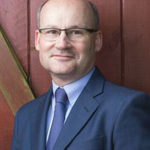In today’s blog we hear from Isobel Marr as she looks at the next phase of development for the Global Challenges Research Fund (GCRF), with UKRI appointing nine Challenge Leaders who will direct the GCRF portfolios in global health, food systems, conflict, resilience, education and sustainable cities.
What are the the GCRF Challenge Leaders?
In autumn 2017, the Independent Commission for Aid Impact (ICAI) published a review of the GCRF. One of the report’s main criticism was around an apparent lack of strategic focus. This, the report suggested, had led to a scattered portfolio of projects, which risked spreading resources too thinly to achieve real impact.

The Government’s response to the report accepted that stronger coordination within the GCRF research portfolio was needed and reiterated that steps were already being taken to address this concern. Part of the approach would be to recruit Challenge Leaders – thematic leads who would build coherence across all GCRF delivery partners and ensure that the fund had the greatest possible impact on global development.
The Challenge Leaders were announced by UKRI on 11 April 2018. Professor Andrew Thompson, UKRI Executive Champion for the GCRF and Newton Fund, has said:
“The appointment of these nine Challenge Leaders will ensure that the GCRF can connect with those on the frontline of global development and respond to the needs and ambitions of developing countries through cutting edge disciplinary and interdisciplinary research. Working with international agencies, development funders, industry and the GCRF research community these new Challenge Leaders will identify and develop research opportunities across different interfaces and maximise real-world impact.”
The Challenge Leaders will play an important role in shaping future investment of the fund, helping to scope future calls and encourage innovative and interdisciplinary approaches. They will also be charged with seeking opportunities beyond GCRF – aligning and integrating the fund with other ODA funding portfolios (e.g. Newton Fund) across UK Government and other funders.
Who are the the GCRF Challenge Leaders?
Global Health: Dr Helen Fletcher, London School of Hygiene and Tropical Medicine – Helen’s research interests include tuberculosis (TB) vaccine development and identification of immune mechanisms important for protection from TB. Helen is also interested in the interplay between socio economic status, immune health and risk of TB disease. Since 2000 She has worked with scientists across Africa in The Gambia, Zambia, Ethiopia, Senegal, Kenya, South Africa and Uganda.
Food Systems: Professor Nicola Lowe, University of Central Lancashire and Dr Tahrat Shahid, University of Oxford – Her primary research interest is trace mineral metabolism, with a particular focus on zinc. From 2013 to 2017, she was Chair of Zinc-Net, a network of international scientists brought together through funding from the European Commission (COST Action), to address issues relating to the role of zinc in human health. She is currently conducting research in Pakistan to investigate novel biomarkers of zinc status, and the potential for wheat biofortification to alleviate zinc deficiency.

Security Protracted Conflict, Refugee Crises and Forced Displacement: Dr Laura Hammond, SOAS University of London and Dr Neelam Raina, Middlesex University – Laura is Team Leader of the EU Trust Fund for Africa’s Research and Evidence Facility which conducts research on migration and conflict dynamics in the Horn of Africa. She also heads the London International Development Centre (LIDC) Migration Leadership Team, which provides strategic advice to the ESRC and AHRC on migration and displacement issues. She is also Chair of the Independent Advisory Group for Country Information, an independent body which reviews the country of origin information products issued by the UK Home Office.
Education: Dr Kelsey Shanks, Ulster University – Kelsey has led commissioned research projects for a range of international actors, including UNAMI, UNICEF, USAID and GIZ. She has a demonstrated record of external engagement, having provided guidance and briefings on education, peace and conflict to UN agencies, government bodies and various INGOs, most recently speaking at the Education Cannot Wait Education Forum on Syria and the UNICEF MENA education forum.
Resilience to Environmental Shocks and Change: Professor Mark Pelling, King’s College London and Dr John Rees, British Geological Survey – Mark’s research is interdisciplinary and has been funded by ESRC, NERC, DFID, EC and the British Academy including large projects supported by the Belmont Forum. Mark is Principal Investigator of the ESRC-DFID programme Urban Africa: Risk Knowledge. He has served on the international scientific steering committees of Future Earth Coasts, Integrated Research on Disaster Risk and the Stockholm Environment Institute, and as a Coordinating Lead Author for the IPCC SREX and Working Group II urban chapters for AR5 and AR6. He is co-chair of the United Kingdom Alliance on Disaster Research.
Cities and Sustainable Infrastructure: Dr Jaideep Gupte, Institute of Development Studies – Jaideep’s research has been funded by the ESRC, DFID, and the EC among others. He is currently the Principal Investigator on ‘Smart Data for Inclusive Cities’ funded by the EC, Executive Director of the ‘Mobile Training Platforms for City Police’ funded by the World Justice Project, and was the Principal Investigator on the recently concluded ‘Informal work and wellbeing in South Asia’ funded by the South Asia Research Hub, DFID.

The GCRF Challenge Leaders have been appointed to provide strong, intellectual and strategic leadership for each strategic research portfolio and to strengthen coordination across multiple delivery partners. They will draw on the knowledge and experience of the GCRF Strategic Advisory Group as well as the various GCRF groups in the research councils and academies.
More information about the Challenge Leaders is available here.
Dr Isobel Marr is the Global Challenges Research Fund Project Officer for the Research Support Office at the University of Edinburgh.



